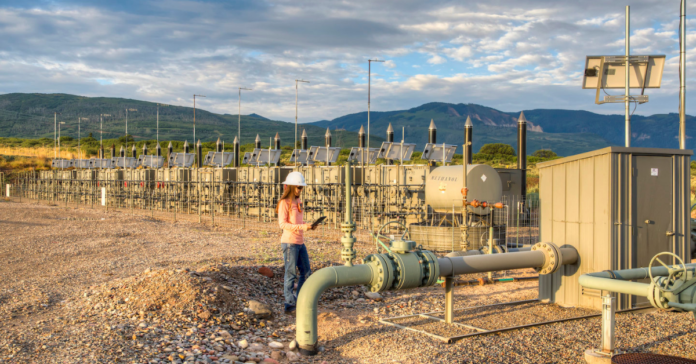Local government leaders in a suburb just north of Denver delayed indefinitely a new set of oil and natural gas regulations to ensure best practices are used for both energy development and health and safety.
The City Council and Mayor of Commerce City voted unanimously on Monday night to pause their process just a week after the draft regulations we’re released. Without the vote, the regulations could have taken effect as soon as November 18 – less than a month after the draft was made available to the public.
A key point of contention within the draft regulations is Commerce City’s proposed extension the state setback of 500 feet out to 1,000 feet for residential structures, high-occupancy buildings, parks, and outdoor venues.
In 2018, Colorado voters rejected Proposition 112 which would have increased setback distances 2,500 feet.
Several dozen representatives of the oil and gas industry attended the city council meeting where the vote was taken and requested a more responsible timeline during the public comment period.
Other rules that the industry has taken issue with including near constant air monitoring and a requirement that wells be drilled within three years of a permit being issued – a timeline that might not always align with a constantly-changing business landscape.
Nick Kliebenstein, an industry consultant spoke about the difficulty of dealing with the three-year limit to drill a well.
“One such example is the regulations would place a three-year limit on oil and gas permits and should the operator not complete the development within that time, they would forfeit that permit,” Kliebenstein. “This regulation not taken into account things such as external market forces which may keep an operator from developing a site.”
Kliebenstein then asked for the council to give more time for community input.
“I am therefore asking the city council to delay the vote, provide more time for the public and other stakeholders to actively engage the council and staff on proposed regulations. This will result in a more robust process and better regulations that work for everybody in Commerce City,” he said.
Dan Haley, the president of the Colorado Oil & Gas Association said that the air monitoring rules do not meet the state’s requirements that regulations be reasonable.
“We don’t believe the regulations as initially drafted or revised are ready to move forward as they do not reflect the realities of responsible oil and natural gas development in Colorado,” Haley said. “Some of the regulations are not technically reasonable such as continuous air monitoring and real-time data reporting for the lifetime of each well site. Senate bill 181 requires that both state and local regulations be reasonable and necessary and it our positions that certain elements of these regulations are neither.”
Outgoing Commerce City Mayor Sean Ford said he supports reasonable regulations and alternative energy sources but the technology just hasn’t been developed to meet the city’s and the country’s needs.
“Until we have other alternatives, I cannot and will not go against what makes this United States of America operate,” Ford said.
Council member Steve Douglas, who fell short in his bid Tuesday to replace Ford as mayor also supported the motion to delay the regulations but made it clear he does not want the industry operating in Commerce City in the future.
“The way the codes right here are written are not strong enough. I think they should be stricter,” Douglas said. “I heard the industry say right now that if we approve this, it would run the industry off. Well, I think it needs to be stricter because I don’t think Commerce City should be going that way.”

